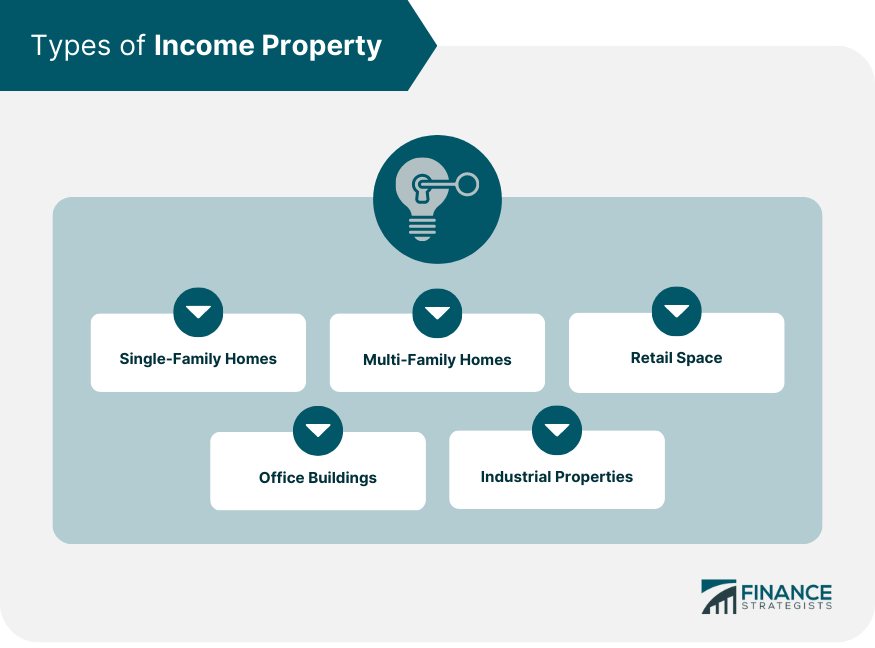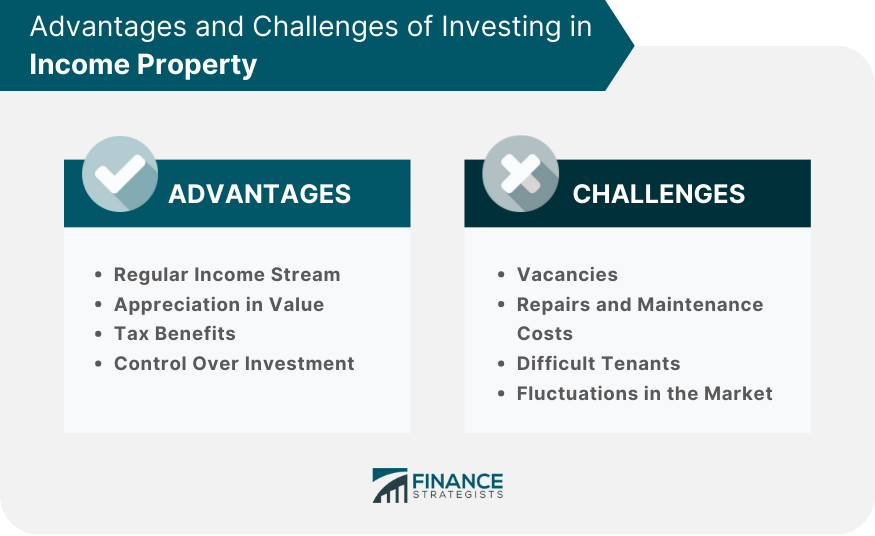Income property refers to any real estate property that generates income for the owner, primarily through renting or leasing it to tenants. These properties can be residential, commercial, or a combination of both, and they serve as an investment vehicle to help owners build wealth over time. Investing in income properties has become increasingly popular as a way to generate passive income, diversify investment portfolios, and achieve financial independence. Different types of income properties may offer different benefits and drawbacks, depending on the investor's goals and preferences. Residential properties, for example, may offer a lower barrier to entry and be easier to manage, while commercial properties may provide higher rental rates and longer lease terms. Mixed-use properties can offer a combination of both residential and commercial income streams, but may require more management and upkeep. By understanding the different types of income properties and the factors that contribute to their success, investors can make informed decisions and maximize their returns. Single-family homes are standalone properties meant to house one family. Investors can purchase these properties and rent them out to generate a steady stream of rental income. Multi-family homes are properties that consist of multiple separate units within a single building or complex. These can include duplexes, triplexes, apartment buildings, and more. Investing in multi-family homes can potentially yield higher returns, as multiple tenants provide multiple sources of income. Retail spaces are properties leased to businesses that sell goods and services to consumers, such as stores, restaurants, and shopping centers. These properties can generate significant income, but their success depends on factors such as foot traffic, location, and the strength of the local economy. Office buildings are properties designed to house businesses and their employees. They can range from small office complexes to large skyscrapers and are typically leased to multiple tenants. Investors can benefit from long-term leases and stable income generated by these properties. Industrial properties include warehouses, manufacturing facilities, and distribution centers. These properties can offer high returns and long-term tenants, but they may require specialized knowledge of industry trends and a larger initial investment. Investing in income properties provides a regular income stream generated through rental payments. This income stream can help investors achieve financial independence and provide a cushion during economic downturns. A steady income stream also helps investors plan their finances better and manage their expenses effectively. In addition to rental income, income properties also appreciate in value over time. Real estate properties tend to increase in value, especially in areas with high demand and limited supply. This appreciation can result in significant gains for investors when they eventually sell the property, making income properties a profitable long-term investment. Investing in income properties can provide tax benefits, such as deductions for depreciation, mortgage interest, and property management expenses. These benefits can help offset the costs associated with owning and maintaining the property. Additionally, investors may be eligible for tax deferrals through like-kind exchanges or depreciation deductions. Owning an income property provides investors with more control over their investments compared to other investment vehicles, such as stocks or bonds. Investors can directly influence the success of their properties through property management, tenant selection, and improvement projects. This control allows investors to make strategic decisions that can positively impact the property's profitability. Vacancies can significantly impact the income generated by a property. Investors should be prepared for periods of vacancy and have strategies in place to minimize vacancy rates, such as offering competitive rental rates and conducting thorough tenant screenings. Having a reserve fund can help investors weather periods of vacancy without compromising the property's profitability. Owning an income property comes with ongoing repair and maintenance costs. Investors should budget for these expenses and be prepared to address issues as they arise to maintain the property's value and appeal to tenants. Performing regular maintenance can prevent bigger problems in the future and reduce repair costs. Dealing with difficult tenants can be challenging and time-consuming. Investors should establish clear tenant screening processes and rental policies to minimize the risk of problematic tenants and protect their investment. Addressing tenant issues promptly and professionally can help minimize tenant turnover and maintain the property's profitability. Real estate markets can be volatile, and property values and rental rates may fluctuate over time. Investors should be prepared for market changes and have contingency plans in place to weather potential downturns. Having a diversified portfolio can help investors manage risk and offset the effects of market fluctuations. Location is a crucial factor in determining the success of an income property. Investors should consider factors such as local employment rates, population growth, and neighborhood amenities when choosing a property location. The condition of a property can significantly impact its rental income potential and appreciation. Investors should carefully assess a property's condition, including structural and cosmetic issues, before making a purchase. Understanding local and national real estate market trends is essential when investing in income properties. Investors should stay informed about factors that could impact rental rates, property values, and tenant demand. Securing financing is a critical step in purchasing an income property. Investors should explore various financing options, such as conventional mortgages, government-backed loans, or private lenders, and carefully consider the terms and interest rates associated with each option. Investing in income properties has become a popular way to generate passive income, diversify investment portfolios, and achieve financial independence. Investors should understand the different types of income properties and the factors that contribute to their success to make informed decisions and maximize their returns. Residential, commercial, and mixed-use properties all offer different benefits and drawbacks depending on the investor's goals and preferences. Income properties provide regular income streams, appreciation in value, tax benefits, and control over investments, but they also come with risks such as vacancies, repairs and maintenance costs, difficult tenants, and fluctuations in the market. Therefore, it is crucial for investors to consider factors such as location, property condition, market trends, and financing options when making investment decisions.Definition of Income Property
Types of Income Property
Single-Family Homes
Multi-Family Homes
Retail Space
Office Buildings
Industrial Properties

Advantages of Investing in Income Property
Regular Income Stream
Appreciation in Value
Tax Benefits
Control Over Investment
Risks and Challenges of Investing in Income Property
Vacancies
Repairs and Maintenance Costs
Difficult Tenants
Fluctuations in the Market

Factors to Consider When Investing in Income Property
Location
Condition of the Property
Market Trends
Financing Options
Final Thoughts
Income Property FAQs
An income property is a type of real estate investment that generates income through rent payments from tenants.
The two main types of income properties are residential (e.g., single-family homes, multi-family homes) and commercial (e.g., office buildings, retail spaces, industrial properties).
Investing in income property can provide a regular income stream, appreciation in value, tax benefits, and control over the investment.
Location, property condition, market trends, and financing options are all important factors to consider before investing in income property.
Risks and challenges of income property investing include vacancies, repairs and maintenance costs, difficult tenants, and fluctuations in the market.
True Tamplin is a published author, public speaker, CEO of UpDigital, and founder of Finance Strategists.
True is a Certified Educator in Personal Finance (CEPF®), author of The Handy Financial Ratios Guide, a member of the Society for Advancing Business Editing and Writing, contributes to his financial education site, Finance Strategists, and has spoken to various financial communities such as the CFA Institute, as well as university students like his Alma mater, Biola University, where he received a bachelor of science in business and data analytics.
To learn more about True, visit his personal website or view his author profiles on Amazon, Nasdaq and Forbes.











